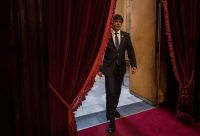
Spain Is Doing Something Brave
Spain’s new amnesty law, on its way to the statute books after passing Congress in December, has ignited quite a ruckus. Tens of thousands of people have taken to the streets to protest the law — which provides a blanket pardon to hundreds of politicians, civil servants and ordinary citizens caught up in the illegal referendum on Catalan independence in October 2017 — and a majority of Spaniards oppose it. Many commentators and politicians, mainly on the right, have argued that the amnesty weakens the rule of law in Spain and even imperils the country’s democracy.
Much of the anger stems from how the amnesty deal came about.… Seguir leyendo »








